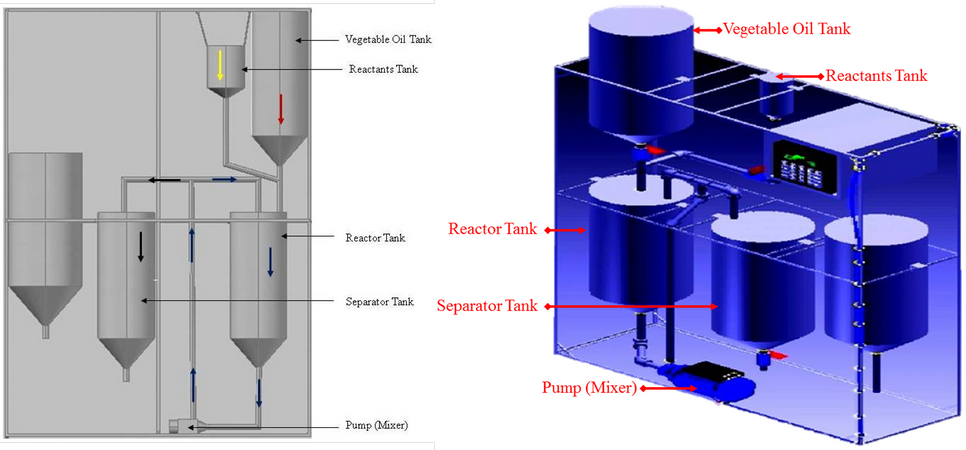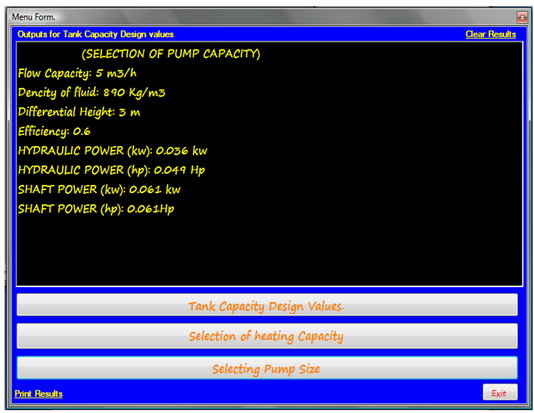|
Joel Nwakaire, from Nigeria, has designed, developed and manufactured a small-scale prototype plant that produces bio-diesel fuel. He holds a PhD in Power and Machine System Engineering. To produce the bio-diesel fuel, Joel Nwakaire designed and manufactured a small-scale production plant to refine vegetable oil. The plant, which he dubbed the Bio-diesel Continuous Production Plant, required the manufacture of a vegetable oil tank, a reactant tank, as well as reactor and separator tanks, among others. The various systems were carefully designed and selected after applying physics and mathematics principles.

Source: J. Nwakaire
The plant was tested with beniseed oil (sesame oil) and palm kernel oil. The fuels that were produced met with ASTM international standards, as well as those of the United States’ National SoyDiesel Development Board. The researcher and his team have also successfully produced algae oil and used it to produce algae bio-diesel. The plant is portable and replicable at minimal cost because only local materials such as steel, pumps, etc. were used; thus simplifying its mechanical system.

The plant had an initial production capacity of about 30 liters per hour which was scaled up to 100 liters per hour. The capacity was increased thanks to a software that was developed to accelerate the plant scaling up process. The automated control system of this bio-diesel plant can record any reaction temperature, reaction time and flow time from any of its 4 gates. All this was constructed without foreign assistance.
Source: J. Nwakaire
The bio-diesel fuel produced by the researcher powers automobile engines and other mechanical engines. He uses his bio-diesel fuel to run his own diesel car as he asserts that bio-diesel fuel is more effective than fossil diesel fuel in terms of caloric value (combustion rate), flash point, etc. In other words, bio-diesel burns faster and the lubrication of the engine is higher. Bio-diesel, therefore, is both a fuel and a lubricant.
Bio-diesel fuel does not necessarily need to be produced with consumable vegetables as non-consumable vegetables such as Jatropha and algae can be used instead. These two vegetables do not require the use of fertile land to grow. This means that there is no need to invest in consumable vegetables to produce bio-diesel in Africa. Consumable vegetables must be reserved to feed Africans.


